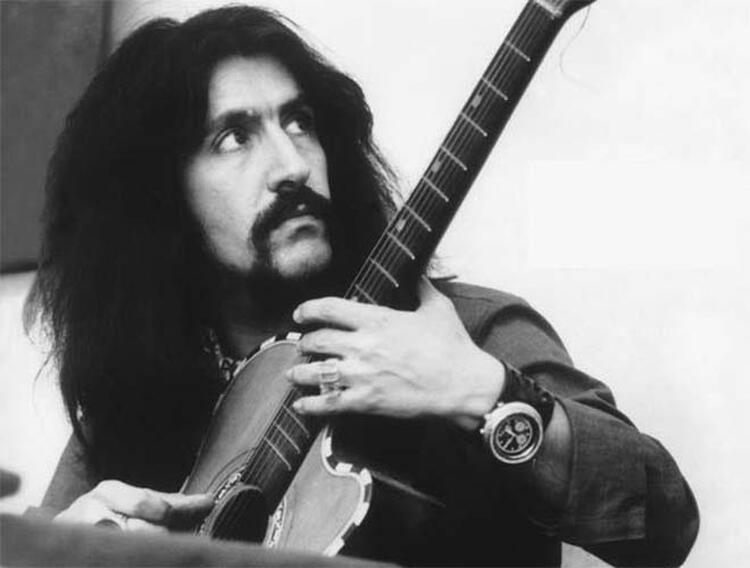
Turkey commemorated Barış Manço, one of the most prominent figures in Turkey who had a great cultural influence, on Jan. 31, 21 years after his passing.
Suffering a heart attack, Manço, one of Turkey’s most beloved figures, died on Jan. 31, 1999 at the age of 56. His death came just before the release of his album “Mançoloji” which marked his 40 years of experience in music.
Millions of people gathered together in Istanbul for his funeral.
With his long hair, silver jewellery and authentic stage costumes, he was best known as a great musician, but he was also a television programmer, a traveler, and the cultural ambassador of Turkey.
 Beside his wonderful career, Manço was fond of Victorian furniture and an important collector of Japanese and Chinese porcelain, 19th-century Orientalist paintings and Art Deco and Art Nouveau glassware.
Beside his wonderful career, Manço was fond of Victorian furniture and an important collector of Japanese and Chinese porcelain, 19th-century Orientalist paintings and Art Deco and Art Nouveau glassware.
Early life
Manço was born on Jan. 2, 1943 in Istanbul during the Second World War. His parents named him “Barış” (“Peace” in English) to celebrate the end of the war. Rumor has is that he is the first person in Turkey to be named after peace.
Manço received his early education at Galatasaray High School in Istanbul and graduated from the Royal Academy of Fine Arts in Belgium in 1969, where he studied graphic and textile design.
In 1978, he married Lale Çağlar and had two children, Doğukan Hazar and Batıkan Zorbey.
Career
His interest in music began during high school where he formed a band named 'Kafadarlar', meaning 'Buddies'.
The father of Turkish rock recorded his first single in the early 60s with his next band, Harmoniler, (The Harmonies), which is one of the first examples of the Anatolian rock genre combining a Turkish folk song with rock instruments.
He recorded his first hit single, “Dağlar Dağlar” (“Mountains, Mountains” in English) in 1970, which sold more than 700,000 copies.
Manço modernized folk poets with diverse themes in lyrics by combining ethnic folk-rock themes.
He later formed the legendary Kurtalan Ekspres in 1972, the band led until his death. His first and only live album was released after he toured with Kurtalan Ekspres in Japan in 1996.
 A singer, composer, television host and actor, the influential artist wrote over 200 songs and traveled to almost 150 countries as part of his television show. Many of his songs have been translated into English, Japanese, French, Italian, Greek, Persian, and Arabic.
A singer, composer, television host and actor, the influential artist wrote over 200 songs and traveled to almost 150 countries as part of his television show. Many of his songs have been translated into English, Japanese, French, Italian, Greek, Persian, and Arabic.
In the 90s, he became more popular across the world, as 20,000 fans attended his live concert in Japan, where Turkish and Japanese flags were waved in harmony.
His television show was broadcasted from 1988 until his death, making it the longest-running Turkish television show in the 1990s.
The first part of his show was aimed at young people, and a generation of Turks grew up with his children's songs, like “Arkadaşım Eşek” (''My Friend the Donkey” in English). The second part, on the other hand, included travel documentaries.
From the equator to the Arctic, he narrated the lives of foreign societies to Turkey.
When asked where he was from, he would say "from the world.”
His major albums are: Baris Mancho (1976), Nick the Chopper (1976), Sakla Samanı Gelir Zamanı (1977), Yeni Bir Gün (1979), 20. Sanat Yılı Disco Manço (1980), Sözüm Meclisten Dışarı with Kurtalan Ekspres (1981), Estağfurullah (1983), Ne Haddimize (1983), 24 Ayar Manço (1985), Değmesin Yağlı Boya (1986), Sahibinden İhtiyaçtan (1988), Darısı Başınıza (1989), Mega Manço (1992) and Müsadenizle Çocuklar (1995).
